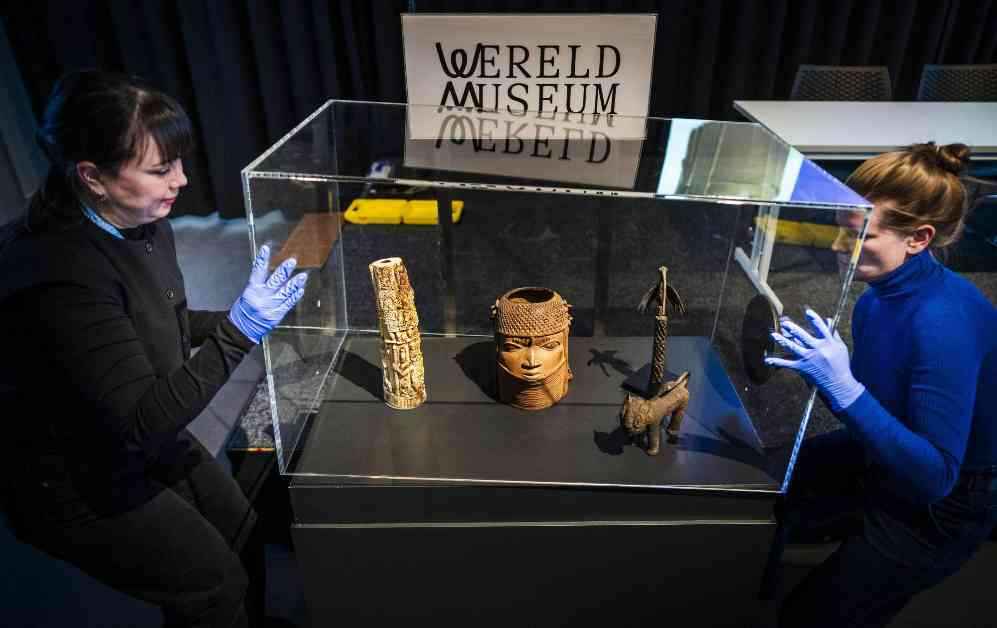The decision to return 113 Benin Bronzes from the Dutch State Collection to Nigeria marks a historic moment in the ongoing discussion of repatriation of cultural artifacts. This significant move, prompted by a request from Nigeria, was announced by Eppo Bruins, Minister of Education, Culture, and Science in the Netherlands on February 19. The press statement released by the Dutch government highlighted the fact that these items were looted by British soldiers in 1897 from the Kingdom of Benin, sold, and eventually found their way into the Dutch State Collection.
The cooperation between experts and representatives from both countries played a crucial role in the decision-making process. Olugible Holloway, Director-General of the Nigerian National Commission for Museums and Monuments, expressed gratitude for the repatriation, noting that this is the largest return of Benin antiquities directly linked to the 1897 British punitive expedition. She praised the Netherlands for their cooperation and hoped that this act would set a positive example for other nations in terms of repatriating lost or looted antiquities.
Cultural Heritage and Restitution
Eppo Bruins emphasized the importance of redressing a historical injustice through the return of these artifacts. He acknowledged the significance of cultural heritage in preserving the history of a country and its people. The Benin Bronzes, consisting of plaques, personal ornaments, and figures, hold immense cultural value for Nigeria. The items are currently housed in the Wereldmuseum Leiden, which is part of the National Museum of World Cultures in the Netherlands.
The transfer agreement signed between Bruins and Holloway marked a significant step towards repatriation. The independent Colonial Collections Committee played a vital role in assessing the items requested by Nigeria. The committee’s report, which involved close consultation and collaboration with the Nigerian National Commission for Museums and Monuments, paved the way for the return of these artifacts. Chaired by human rights activist Lilian Gonçalves-Ho Kang You, the committee also received requests from Sri Lanka, India, and Indonesia.
Local Initiatives and Global Impact
In addition to the items from the Dutch State Collection, the city of Rotterdam also announced its decision to return six Benin Bronzes that were looted in 1897. These artifacts, including a bell, three relief plaques, a coconut casing, and a staff, will be repatriated to Nigeria. Said Kasmi, a member of the Rotterdam municipal executive, highlighted the importance of returning art and heritage to their rightful place. He emphasized that these objects belong in Nigeria and that the act of repatriation signifies a crucial step in acknowledging the past and respecting the cultural significance of these items.
The return of the Benin Bronzes to Nigeria represents a significant milestone in the broader conversation surrounding the repatriation of cultural artifacts. It underscores the importance of recognizing and rectifying historical injustices while honoring the cultural heritage of nations across the globe. This decision sets a precedent for other countries to follow suit in returning lost or looted artifacts to their countries of origin, fostering a greater sense of cultural equity and understanding.












